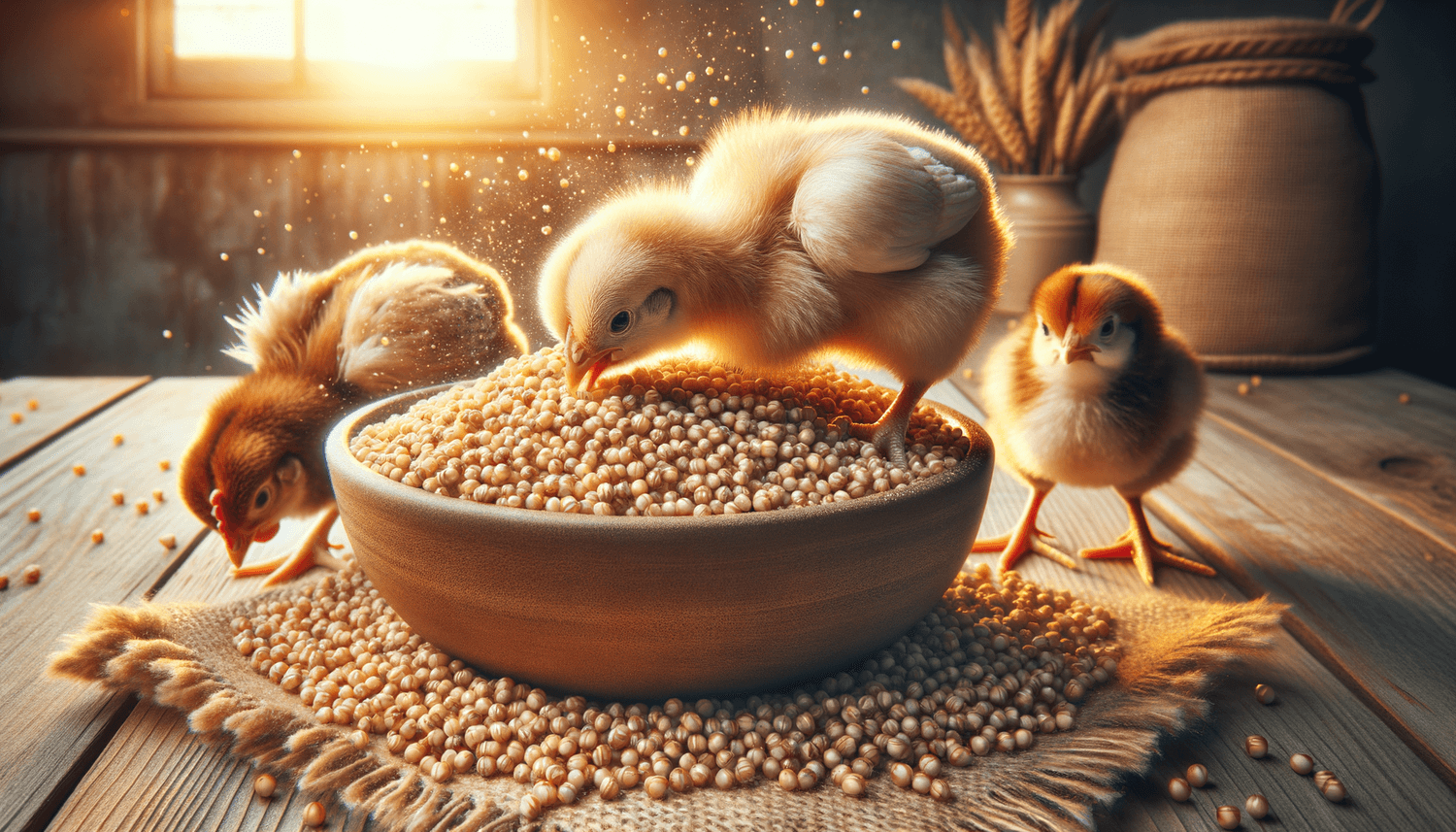Yes, chickens can eat millet. Millet is a nutritious grain that can offer a variety of health benefits to chickens when fed in moderation. It is a source of essential nutrients, protein, and energy that can complement their regular diet.
Quick Summary
- Chickens can eat millet.
- It is nutritious and provides essential nutrients and protein.
- Millet offers health benefits but should be fed in moderation to avoid nutritional imbalance.
- Recommended as a treat, not exceeding 10% of the chicken’s diet.
Overview of Millet
Millet is a small-seeded grass that is cultivated as a cereal crop in various parts of the world. It is high in B vitamins, especially niacin, B6, and folic acid, as well as minerals such as potassium, magnesium, and zinc. Millet also provides protein and dietary fiber which are beneficial to a chicken’s health.
Benefits and Risks of Millet for Chickens
Feeding millet to chickens can support their body’s functions with its nutritional content, particularly enhancing feather health and eggshell quality. However, the risks arise when millet is overfed, potentially leading to obesity and nutritional imbalances due to its high calorie and carbohydrate content.
Feeding Guidelines
To properly feed millet to chickens, offer it as a treat, ensuring that it does not exceed 10% of their overall diet. Provide millet sporadically rather than a daily meal to maintain a balanced intake of nutrients. Always ensure that chickens have access to their primary feed and fresh water.
Alternatives
If millet is not available or you’re looking for a diverse diet for your chickens, other safe grains like corn, wheat, and oats can be suitable alternatives that are also rich in nutrients.
Expert Opinions
Poultry nutritionists and veterinarians often recommend incorporating a variety of grains into a chicken’s diet for optimal health. According to the Merck Veterinary Manual, grains like millet can be a part of a balanced poultry diet when offered in moderation and complemented with a variety of other feed options.
Frequently Asked Questions
After learning about the benefits of feeding millet to chickens, owners often have a few more questions. Here are some common ones:
Can chickens eat millet every day?
No, it’s not recommended to feed chickens millet every day. It should be given occasionally as a treat to prevent any dietary imbalance.
Is millet better for chickens than other grains?
Millet is not necessarily better, but it is a healthy part of a varied diet. Like other grains, it provides different nutrients and benefits when fed in moderation.
How much millet can I give my chickens at a time?
As a general rule, treats like millet should not make up more than 10% of a chicken’s total dietary intake. Measure this portion accordingly with their primary feed.

















